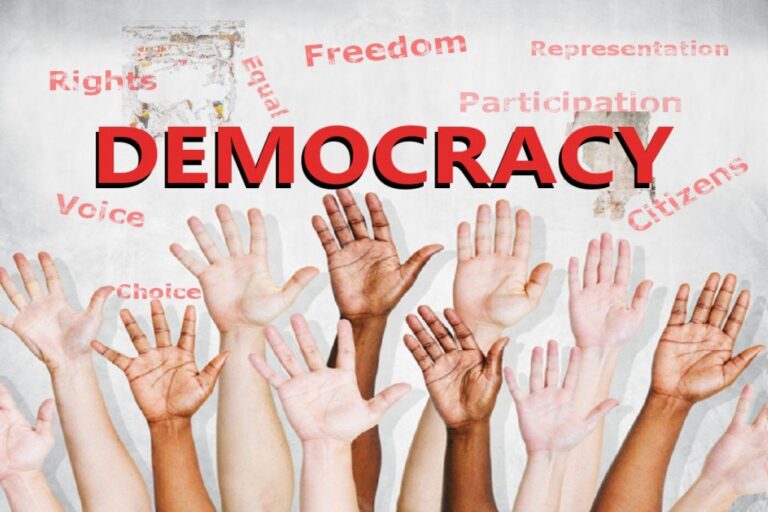Yes, we vote. Occasionally. We have multiple political parties. We’ve transitioned from military rule to civilian governance. But democracy is not a box-checking exercise—it is a promise. At its core, democracy must deliver freedom, dignity, and opportunity. It must not only give people the right to vote, but also the power to prosper.
And this is where Nigeria’s democratic journey faces a critical fault line.
While political transitions have occurred, economic transformation has lagged. For millions of Nigerians—entrepreneurs and professionals alike—democracy has meant little in real terms. They battle suffocating bureaucracy, unstable policies, inflation, and inadequate infrastructure. Despite ambition and talent, many remain trapped in economic stagnation.
This week, we offer a bold premise: without broad-based economic freedom, democracy remains incomplete. To realize the true promise of governance by the people, Nigeria must elevate its job creators, innovators, and business builders—not as political spectators, but as central players in national development.
What Is Economic Freedom—and Why Is It Vital to Democracy?
Economic freedom is the ability of individuals and enterprises to:
-
Choose how to work, produce, invest, and consume
-
Own and protect property and capital
-
Operate with minimal bureaucratic interference
-
Trade freely across markets
Nations with high economic freedom consistently enjoy more stable democracies, higher incomes, greater innovation, and improved quality of life.
Nigeria has a population exceeding 220 million, vast natural resources, and a youthful median age of 18. Yet it remains one of the most difficult places globally to start and sustain a business. This contradiction undermines not just the economy—but the very foundation of our democratic ideals. When people are economically powerless, they become politically disengaged. Why vote when nothing improves?
Entrepreneurship: The Beating Heart of Free Nations
In thriving democracies, entrepreneurs do more than generate profit—they expand freedom. They challenge monopolies, create jobs, and develop real-world solutions to societal needs. In essence, they push the boundaries of what’s possible for a nation.
Consider 1776: the year America declared independence was also when Adam Smith published The Wealth of Nations, arguing that economic liberty is inseparable from political freedom.
Estonia, once shackled by Soviet rule, embraced this truth. By launching sweeping reforms—digitizing government services, encouraging startups, and simplifying regulation—it became Europe’s digital hub in under two decades, home to more than 1,000 startups including Skype.
In Nigeria, Entrepreneurs Are Strangled by Systemic Barriers
Nigerians are not lacking in enterprise. But many are battling a system that stifles rather than supports them.
Major obstacles include:
-
Overregulation: A maze of taxes and fees from multiple agencies—NAFDAC, SON, CAC, FIRS, ARCON, LIRS—chokes business viability.
-
Policy Volatility: Unannounced currency devaluations, subsidy removals, and trade bans disrupt long-term planning.
-
Infrastructure Deficiencies: Erratic electricity, dilapidated roads, and poor broadband undermine productivity.
-
Lack of Access to Capital: Affordable loans and venture funding remain elusive for most startups.
By the Numbers: A Troubling Landscape
-
131st out of 190 – Nigeria’s position on the World Bank Ease of Doing Business Index
-
Over 70% of SMEs shut down within five years due to systemic obstacles (PwC Nigeria, 2023)
-
More than 60% of youth entrepreneurs cite policy instability as their primary challenge
Consider Amaka, a fashion designer in Onitsha. She paid daily and monthly charges—local government tax, sanitation fees, signage permits, union dues—all without official receipts. After just 18 months, she closed her shop. This is not democracy. This is economic asphyxiation.
The Cost of Ignoring Entrepreneurs: National Decline
In 2023, Nigeria’s unemployment rate hit 33%, with youth unemployment surpassing 40%. These same young people fueled the #EndSARS protests—not just against police brutality, but against a broken economic system.
The state cannot absorb all job seekers. Oil revenues are unstable. Without private sector expansion led by MSMEs, there is no path to meaningful employment or prosperity. Economic despair breeds political apathy. Disillusioned youth stop believing in the democratic process.
History is replete with warnings:
-
Post-WWI Germany’s economic collapse led to authoritarianism
-
Venezuela’s oil-rich economy spiraled into dictatorship due to chronic mismanagement
The lesson is clear: when citizens are denied opportunity, democracy crumbles into desperation.
A Call to Action: Democratizing Opportunity Through Enterprise
If Nigeria is to preserve and deepen its democratic gains, it must unlock economic opportunity not through handouts, but through structural reform and liberty.
Entrepreneurs must stop waiting for rescue and begin driving change—narrating their own value and organizing for policy reform. Professionals must take their grievances beyond whispers in corporate hallways and demand better from public institutions. Government must evolve from being an obstacle to becoming a launchpad for enterprise.
Without economic empowerment, democracy is nothing more than a slogan.

